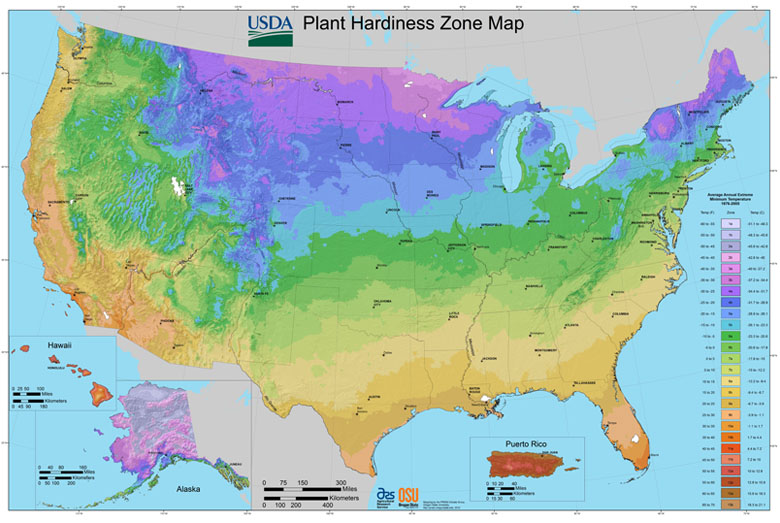What types of hedges will grow in my area?
Refer to the chart below for a summary of hardiness. Additional plant varieties are available – please view the plant pages for more detailed information.
Not sure what zone you’re in? Check by entering your ZIP code here:
| VARIETY | USDA Hardiness Zone Range |
|---|---|
| Flame Amur Maple | 3-8 |
| Buxus x ‘Green Mountain’ | 4-9 |
| Carpinus betulus | 4-8 |
| Cornus mas | 5-8 |
| Fagus sylvatica | 5-8 |
| Ilex aquipernyi ‘Dragon Lady’ | 6-8 |
| Juniperus scopulorum ‘Wichita Blue’ | 4-7 |
| Magnolia stellata ‘Royal Star’ | 5-9 |
| Prunus laurocerasus | 6-8 |
| Prunus laurocerasus ‘Schipkaensis’ | 6-9 |
| Prunus lusitanica | 6b-9 |
| Pyracantha ‘Teton’ | 6-9 |
| Taxodium distichum | 5-10 |
| Taxus x ‘Hicksii’ | 5-8 |
| Emerald Green Arborvitae | 3-8 |
| Thuja occidentalis | 3-8 |
| Thuja plicata ‘Virescens’ | 5-9 |
| Green Giant Arborvitae | 5-8 |
| Viburnum dentatum | 2-8 |
Not sure what these zones mean? The USDA has categorized each area in the US by a “hardiness zone”, which is based on the lowest temperatures in each area. Plants hardy to that area will survive the coldest temperatures experienced in that area. For example, if you plant an Acer ginnala ‘Flame’ (hardy to zone 3) in northern Wisconsin where it is zone 3, the maples will be fine even when temperatures hit -35ºF. If, however, you plant a Portuguese laurel (hardy to zone 6b), the first temperatures below -5ºF will kill it immediately.
